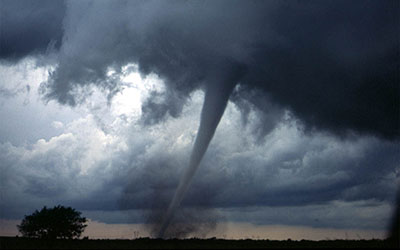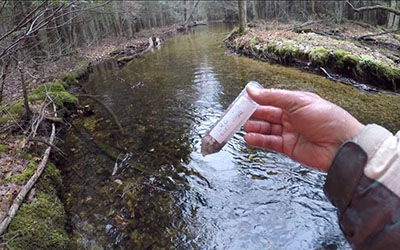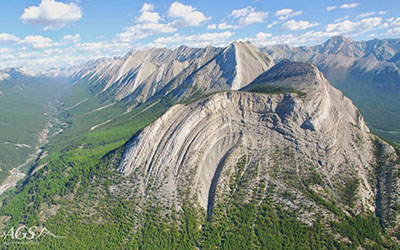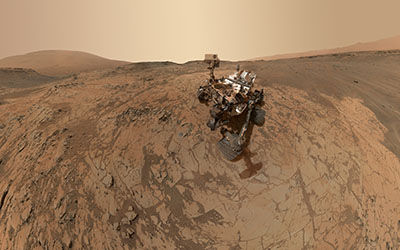Research Areas

Atmospheric Sciences
We study extreme weather, climate change, and their impacts on both ecosystems and modern society.

Environmental Geoscience
We use biology, chemistry, geology, and physics to understand how the Earth System supports such a diversity of life and how human behavior is impacting this system.

Geodata Science Initiative
Data science is the fourth and the newest paradigm of science. In Geodata Science Initiative, we conduct transdisciplinary research, merging or articulating EAPS subject matters with technical areas in data science: statistical and machine learning methods and models, algorithms for the models and methods, and computational environments for data analysis.

Geology and Geophysics
We study the processes that shape our planet, from the building of mountains and oil-bearing sedimentary basins, to the flow of warm rocks and cold glaciers, to the triggering of earthquakes.

Planetary Science
We study the evolution of the solar system and how planets evolve over time due to impacts, tectonics, and atmospheric processes, with an eye to the potential for past and future habitability.
Research News
Europa Clipper is one of two missions on their way to see if Jupiter’s moons could support life
10-21-2024
POPULAR SCIENCE — On Oct. 14, 2024, NASA launched a robotic spacecraft named Europa Clipper to Jupiter’s moons. Clipper will reach the ice-covered Jovian moon Europa in 2030 and spend several years collecting and sending valuable data on the moon’s potential habitability back to Earth. Mike Sori, of Purdue EAPS, explains this mission and more for The Conversation and Popular Science.
Can Diamond Dust Help Cool Earth? Exploring Costs and Geoengineering Risks
10-21-2024
GADGETS 360 — Injecting diamond dust into the atmosphere could potentially cool the planet by 1.6ºC, according to a recent study published in Geophysical Research Letters. Led by Sandro Vattioni, a climate scientist at ETH Zürich, the research explores whether diamonds, as opposed to commonly used materials like sulfur, could offer a safer and more effective method for stratospheric aerosol injection. Critics like Daniel Cziczo, an atmospheric scientist at Purdue University, argue that the risks of unintended consequences outweigh the potential benefits.
The little-known tale of thirsty chips
10-14-2024
Two things that affect everyone daily are the water we need for life and the chips we need to run our electronic devices. These two essential commodities are oddly connected. By some estimates, a large semiconductor chip facility can use millions of gallons of groundwater per day. That’s the equivalent of the daily groundwater used by a small city with a population around 120,000. Three graduate students from Purdue University were awarded the “Let’s Talk About Water” grant for 2023 by the Consortium of Universities for the Advancement of Hydrologic Science (CUAHSI) to investigate groundwater use in the semiconductor industry. The grant was awarded to Ayobami Oluwadunsin Oladapo (team leader, Earth Atmospheric Planetary sciences - EAPS) and co-creators Shivika Aggrawal (Ecological Sciences & Engineering/Horticulture & Landscape Architecture - ESE/HLA) and Srilani Wickramasinghe (ESE/EAPS) for their proposal called “The little-known tale of thirsty chips.”
Asteroid Ceres is a former ocean world that slowly formed into a giant, murky icy orb
09-25-2024
A crater-rich dwarf planet named Ceres located in the main asteroid belt between the orbits of Mars and Jupiter was long thought to be a celestial being composed of a materials mixture not dominated by water ice. Researchers at Purdue University used data from NASA’s Dawn mission to show that Ceres’ crust could be over 90% ice. This discovery that Ceres has a dirty ice crust is led by Ian Pamerleau, PhD student, and Mike Sori, assistant professor of Purdue University’s Department of Earth, Atmospheric, and Planetary Sciences (EAPS) published their findings in Nature Astronomy.
NASA Mars Rover Spots Surprising ‘Zebra Rock’ Unlike Any Other
09-24-2024
FORBES — Mars fans have been abuzz since NASA’s Perseverance rover spotted an extraordinary rock on Sept. 13. A raw image sent back by the rover shows a striped rock with dark and light features sitting on the dusty ground. No other known Mars rocks have looked quite like this “zebra rock.” Researchers are now offering possible explanations for the oddity. “The internet immediately lit up with speculation about what this ‘zebra rock’ might be, and we’ve enjoyed reading your theories,” wrote Athanasios Klidaras, a Perseverance team member and doctoral student at Purdue EAPS.